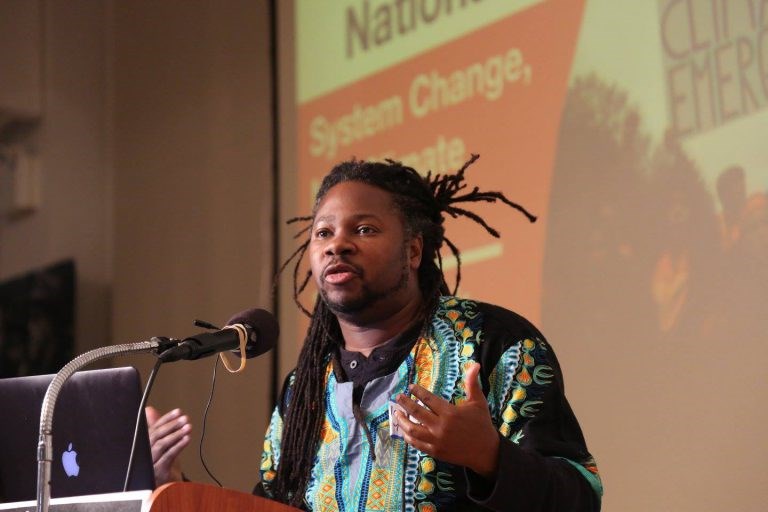
Imani Henry is a walking encyclopedia on activism. Henry, 48, can give in-depth accounts of incidents of police brutality, from Ferguson to Flatbush; he can detail the efforts of the campaign to free former Black Panther Mumia Abu-Jamal; and he's attended almost every Democratic National Convention and Republican National Convention since 2000.
"I have so many stories," Henry said. This statement is unsurprising from someone whose passion for community activism has propelled his adult life.
Henry's story of service actually began in the 7th grade when he started a petition to have school buses transport students to his school, Boston Latin Academy in Boston, Massachusetts. Before then, the students, whom Henry said were mostly people of color, had to force their way onto MTA public buses.
"Say we were at Atlantic Terminal and everyone from Park Slope, Fort Greene, Bed-Stuy and Flatbush that went to your school had to get on, like, six buses," Henry explained. "Hundreds of kids would have to get on these buses. It was ridiculous."
Henry recalled making it onto a bus and taking out a sheet of paper to create a petition that he passed around to the other children. Eventually, the parents of the students got involved, the story gained the attention of newspapers and the students received their school buses.
For Henry, this experience was "life-changing," because he discovered that anyone, regardless of their background could be a changemaker.
"Anybody can be political. Anybody can do something to change their circumstance. We don't need to be incredibly well educated. We don't need to know all the talking points. That's what I learned," Henry said.
As empowering as this moment was for Henry, looking back, he does not consider it to be his true political awakening. Henry reserves that spot for the infamous Rodney King beating. In 1991, when this incident occurred, Henry was a college student about to graduate from Emerson College in Boston.
"Rodney King changed my life truly," Henry said. "Because it didn't matter if I got a degree or not, [I] could be shot by the cops. [I] could be shot and killed by the cops and no one [would] care... Rodney King was the moment I decided I would be a revolutionary."
Since then, Henry left Boston to move to Brooklyn and fully launched himself into activism. He recalled fighting for public housing in Williamsburg, disrupting the inauguration of Mayor Rudolph Giuliani in 1994 and working as a youth organizer. Henry pursued acting for a time, but his attention always seemed to go back to his causes.
Even now, Henry's day job as a diversity training consultant can be seen as a milder version of his activism. "The term I use is anti-oppressive cultural competency," Henry said, describing his work. "We're into [figuring out] how to not continue to promote or create systems of oppression when we're dealing with people."
For nearly four years Henry also has been working to figure out how to stop the oppression of his neighbors in Flatbush where he has lived since 2002. The encroachment of gentrification and incidents of police brutality have spurred Henry to create Equality for Flatbush, an organization devoted to tackling these two issues.
"I feel like we have to fight because why should we lose something so beautiful and precious because some rich developer wants to take it from us or because some cop wants to shoot and murder us," Henry said.
"I love this neighborhood and I love this community. I fight for it because there is nothing like it."



